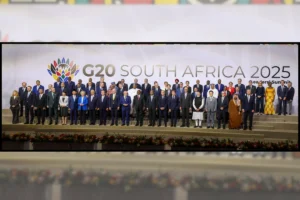
On Friday, the Supreme Court directed the Centre to formulate a clear procedure for addressing cases where foreign nationals, granted bail for crimes committed in India, flee the country after jumping their bail conditions.
The case arose from a Special Leave Petition filed by the state of Jharkhand, challenging the bail granted to a Nigerian national, Alex David (also known as MU Henry), accused of several serious offenses, including cybercrime and fraud.
The state raised concerns, alleging that the accused fled India after violating his bail conditions.
Justices Sudhanshu Dhulia and Ahsanuddin Amanullah of the Bench emphasized the gravity of the matter. They noted that foreign nationals who flee India after granting bail evade justice, which is not an isolated occurrence.
As a result, the court decided to add the Union of India as a party to the case.
The bench further instructed the Solicitor General or his representative to present the government’s stance on the issue.
Supreme Court Calls For Clear Procedure To Address Foreign Nationals Fleeing Bail Conditions
Kanu Agrawal, representing the Centre, assured the court that the government is actively working on the issue and will provide a detailed procedure for managing such cases in the future.
The court further emphasized that foreign nationals flee India after receiving bail and evade justice regularly, noting that such cases occur frequently. It called for authorities to establish a clear procedure, if one is not already in place, to address these situations and outline the necessary steps for managing them effectively in the future.
The case pertains to Alex David, charged under various sections of the Indian Penal Code, including those related to cheating, forgery, and conspiracy, as well as provisions under the Information Technology Act.
These charges stem from an FIR registered in 2019 in Jharkhand concerning cybercrime activities.
In May 2022, despite the serious nature of the allegations, the Jharkhand High Court granted bail to the accused, considering his extended period of custody since January 2020.
“Though it has been stated that several mobiles with SIM cards were recovered from the possession of the petitioner, which, according to the prosecution, was obtained by using forged papers and was instrumental in commission of cybercrime, but considering the fact that the petitioner is in custody since 6.1.2020, the, named above, is directed to be released on bail, on furnishing bail bond of Rs10,000 with two sureties of the like amount,” the Jharkhand HC asserted.
Also Read: Delhi Court To Rule On Supplementary Chargesheet In Waqf Board Money Laundering Case
To read more such news, download Bharat Express news apps























